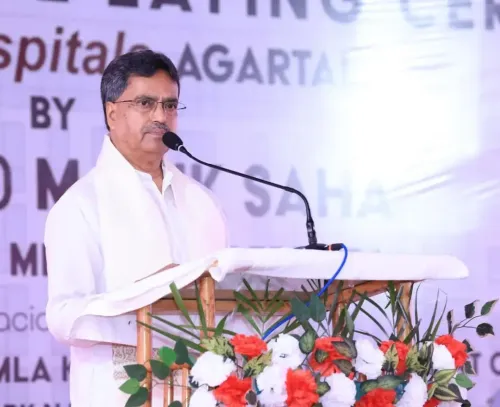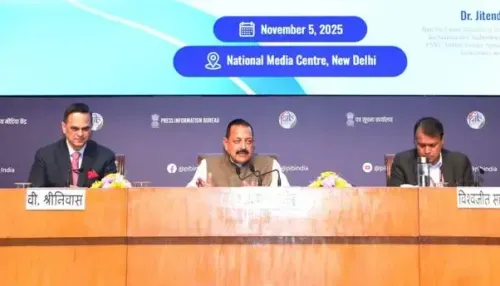Can Nearly 85% of Oral Problems Be Prevented?

Synopsis
Key Takeaways
- 85% of oral problems are preventable with proper awareness.
- The need for innovative technology to improve access to dental care.
- Alcohol and tobacco significantly heighten the risk of oral diseases.
- Public health strategies are essential for promoting oral health awareness.
- Recognizing early symptoms can lead to better outcomes.
New Delhi, Sep 20 (NationPress) Health specialists emphasized that with adequate awareness and advanced technology, approximately 85 percent of oral issues are preventable, during their discussions on Saturday.
At the three-day 35th Annual Conference of the Indian Society for Dental Research (ISDR) taking place here, over 30 distinguished keynote speakers from both national and international backgrounds highlighted the importance of collaborative, research-based approaches in the fields of oral and craniofacial sciences.
Prof. (Dr.) Mahesh Verma, Vice Chancellor of Guru Gobind Singh Indraprastha University (GGSIPU), conveyed to IANS, "Although oral diseases may not be life-threatening, they can gradually diminish the quality of life. If we focus on awareness, preventative research, and the implementation of affordable technologies, we can prevent nearly 85 percent of oral problems."
He further stated, "Our challenge is significant; millions of people in both rural and urban India either lack access to essential dental care or cannot afford it. Bridging this gap requires innovation and technology. As lifestyles evolve and living standards improve, achieving wellness is impossible without oral health."
Verma also called for enhanced attention to oral health within the national health agenda.
He noted that dental research could encompass 36 different categories, including regenerative therapies, revitalizing dead tissues, material sciences, and public health strategies.
Additionally, experts pointed out that alcohol can start compromising oral health right from the first sip. Dr. Aswini Y.B. from the Maulana Azad Institute of Dental Sciences remarked that while it is widely recognized that alcohol harms the liver and body, its detrimental effects on oral health begin even earlier.
“The mucosa, a delicate protective lining in our mouth, is quickly dried out by alcohol. This dryness weakens the lining, instigates painful blisters, and increases susceptibility to infections,” Aswini explained.
“Alcohol also inhibits saliva production—the mouth’s natural cleansing agent. A lack of saliva allows harmful bacteria to flourish, hastening the spread of infections and elevating the risk of oral cancer over time,” the doctor added.
Aswini issued a grave warning regarding the combination of alcohol and tobacco.
“This lethal combination significantly raises the risk of severe oral diseases, including cancers. Unfortunately, this habit is far too prevalent, particularly in India,” the dentist remarked.
Other professionals at the conference urged the public to be vigilant about early warning signs such as persistent mouth dryness, sores, or discomfort, and to take these symptoms seriously. They stressed that safeguarding oral health involves more than just brushing twice daily; it requires making informed lifestyle choices.
The three-day event has attracted over 600 delegates, including 150 international participants from 20 different countries.









